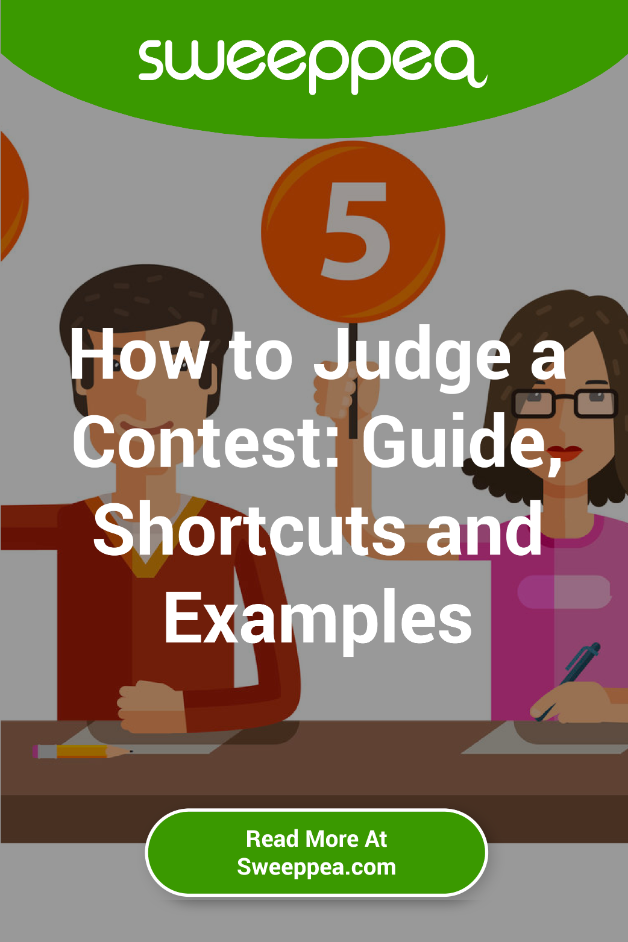What is a Contest?
A contest is an activity where skill is needed to win. Unlike a Sweepstakes where a random draw identifies the winner, in a contest the participants has to take an action that requires some degree of skill. That degree of skill depends on what the promotion or event is asking the participant to do. For example; in an essay contest, participants enter and compete by submitting original writing.
The Legal Contest Formula
Prize + consideration (monetary fee or demonstration of skill) = legal contest (in most jurisdictions)
Are Contest Legal in the US?
Yes. All 50 States allow contest promotions. All contests are allowed as long as the sponsor awards the prize based on skill and not chance.
See Contest Rules and Laws by State.
The Judging Criteria
Contests also have an element of competition that requires the Sponsor or agency to set clear contest judging criteria so participants know how their entries will be judged. This criteria will also tell the judging body what to look for and how to assign value or rank entries.
As a marketer, you can save yourself a lot of potential trouble, and complaints, if your judging criteria is clear to all participants and judges. For example: “Essay Submissions must be in English, comply with Official Rules, meet all requirements called for on the Contest Website and be original work not exceeding 1,000 characters in length.”
The “How-To” Guide for Judging
In a contest, the judging criteria is an attempt to focus the participants, as well as the judges, on the expected outcome of the entry. Properly designed judging criteria aims to minimize the judges unconscious biases and focus their attention on the qualities that are going to be weighed and assigned a value or score. For example, a judging criteria score sheet may rank values as “33.3% for creativity, 33.3% for originality; and 33.3% for adherence to topic.”
Judges (ideally more than one) should be experts or have some degree of expertise in what they are judging. This is not a requirement, but it helps the Sponsor or contest administrator select the winner. The contestants also gain a sense of fair play when they see the winner was chosen by experts.
How to Pick Judges for the Contest
If you can’t find expert judges, then individuals or a group with a clear understanding of the judging criteria and no conflicts of interest or bias could serve as judges. Beyond the judging criteria, the judges should have seen enough examples of the work being judged to determine what is considered poor, average and exceptional within the criteria.
Judges Goals
Ultimately, judges aim to assign a total value or points to each entry and select the winner based on total amount of points earned.
Judging Shortcut
A shortcut to judging large numbers of entries is to use social media networks to judge on your behalf up to a certain degree. For example, you can run your contest on Facebook and have the fans vote for the top five entries. From there a more formalized judge or contest administrator can select the winner based on the criteria. This can work well, but there are risks associated with fan voting. One of the risks is that participants can simply ask their friends to vote for them regardless of the quality of the work. It undermines the promotional effort when a poor entry gets lots of votes. This is why we don’t recommend that fan votes make the final decision on who wins.
Protect Your Contest With Judging Criteria
Having your judging criteria set will also protect the integrity of the contest and guide judges if there is a tie. A well-articulated judging criteria will explain what to do in the event of a tie. For example; “In the event of a tie for any potential Winning Entry, the score for Creativity/Originality will be used as a tiebreaker.” Or “If there still remains a tie, Sponsor will bring in a tie-breaking Judge to apply the same Judging Criteria to determine the winner.”
Rules for Social Media Contests
Contests are allowed in all social media platforms as long as you follow state laws and the social media platform’s own set of rules.
- Facebook Contest Rules you should follow, along with a few Facebook contest ideas to help you get started. See Facebook Contest Rules
- Instagram has some strict rules that you need to be aware of and follow closely if you want your promotion to be successful. See Instagram Contest Rules
- Pinterest can help you connect with your customers, especially if your business is related to the types of content that often trend on Pinterest like fashion, food, and beauty. See Pinterest Promotion Rules
- For Twitter see Guidelines for Promotions on Twitter (sorry, we haven’t written a rules article on Twitter yet.)
- For Youtube see YouTube’s Contest Policies and Guidelines (sorry, we haven’t written a rules article on Youtube yet.)
Can You Charge Participants an Entry Fee?
Yes, as long as the winners are chosen by skill and not chance (randomly).
Remember: Prize + consideration (monetary fee or skill) = legal contest (in most jurisdictions)
Contest Official Rules Examples
Better Homes & Gardens America’s Best Front Yard Official Contest Rules
Bottom Line: Contests are a Great Marketing Tool
Contests are worth the effort and repay the sponsor handsomely. They’re fun and generate a lot of buzz, awareness and potential sales for the sponsor. Just make sure your judging criteria are set in place. If you need any help with your contest let us know at support@sweeppea.com.
Need help witha Contest? See our Contest Management Services
Want to build a sweepstakes by text? See our features and pricing.

